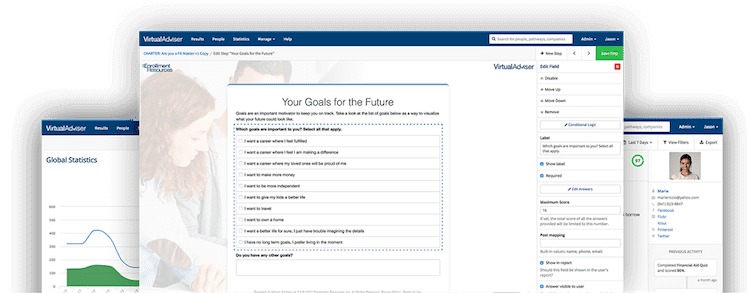Invasive Cardiovascular Technologist Program
Go with the leader in allied health training since 1947, at Carnegie Institute in Michigan.
Our online and practical application classes (hybrid training) provide thorough, comprehensive education and working knowledge of required skills and competencies. Develop confidence in small class sizes, one-on-one instruction, and competent, experienced faculty. Find out why medical employers depend on Carnegie graduates.
The Invasive Cardiovascular Technologist student is trained to assist the physician in performing invasive testing techniques, which provide critical data for detecting and managing cardiac and vascular diseases. Students develop skills in preparing and monitoring patients during invasive cardiac procedures and other treatment modalities.
Invasive Cardiovascular Studies include:
- Anatomy & Physiology/Pathophysiology
- Therapeutic Communications
- Cardiovascular Pharmacology
- Basic & Advanced Electrocardiography (EKG)
- Physics
- Vital signs
- Sterile Technique
- Patient Assessment
- IV Administration
- Diagnostic Cardiac Catheterization
- Hemodynamics
- Radiation Safety
- Recognition of and intervention in lethal arrhythmias
- Interventional Procedures such as angioplasty, stents, and intra-aortic balloon pumps
- Peripheral Intervention
- Cardiac Pathology
Emerging technologies of peripheral vascular intervention and concepts of cardiac electrophysiology and pacemakers are explored to prepare the student for expanding career opportunities. Advanced Cardiac Life Support (ACLS) is presented according to the guidelines of the American Heart Association.
Advanced Cardiac Life Support (ACLS) is presented according to the guidelines of the American Heart Association.
Is a Career as an Invasive Cardiovascular Technologist Right For You?
Take the Free Healthcare Career Training Readiness Quiz!

In only 3 minutes, receive a personalized report identifying your strengths and social style. Learn what training & careers are best for you!
The Clinical & Externship Experience
The clinical/externship rotation is an integral part of the training program. Eligible students are assigned to a school-approved clinical site by the Program Director. Students will maintain this rotation until all required hours have been completed within the allotted time frame. Site visits to hospitals are conducted regularly by the school clinical site coordinator to assess the student’s satisfactory progress.
Due to the technical nature of this program, a minimum of an associate degree is required. In addition, students must have prior allied health training, recent clinical work experience, and college credits in anatomy & physiology, math, and science.
Career Placement
The knowledge and skills acquired prepare students for responsible career entry positions with advancement opportunities in hospital cardiac catheterization laboratories. A widespread, critical demand exists for competent, credentialed, Invasive Cardiovascular Technologists.
Medical Employers depend on Carnegie Invasive Cardiovascular graduates. You can trust Carnegie Institute, with over 75 years of quality education, training, and career placement for students like you!
Other Programs Carnegie Offers:
- Medical Assistant
- Medical Business Specialist
- Medical Insurance Biller
- Massage Therapy
- Electroneurodiagnostic Technologist
- Cardiology Technician
- Vascular Technologist
- Cardiovascular Technologist
- Cardiac Electrophysiology Technologist
- Pacemaker/ICD Technician
Publication of Outcome Results
According to CAAHEP, and JRC-CVT Standards, schools must publish outcome results for the following programs: Invasive Cardiovascular Technologist, Vascular Technologist, and Cardiovascular Technologist based on the 2020 Annual Reports Management System.
The published results are consistent with our 2023 JRC-CVT Annual Report. This is a 3-year average for the Invasive CVT Program outcomes in the national credentialing pass rate, retention, and positive placement for 2023, 2022, and 2021.
Average Rate of Graduates who took and successfully passed the RCIS national credentialing through CCI: 100%.
Average Retention Rate: 93.55%.
Average Positive Placement Rate: 96.55%.
Textbooks & Reference Manuals
| Publisher | Title | Author | ISBN | Price |
|---|---|---|---|---|
| Lippincott | ECG Workout Book | Huff | 978-1-4511-1553-6 | $52.79 |
| APRN World | Cardiac Pharmacology, 2nd Edition | Nair | 978-194-100-4128 | $74.95 |
| Elsevier | Anatomy & Physiology, 9th Edition | Patton/Thibodeau | 978-0-3232-9883-4 | $199.00 |
| Elsevier | Netters Cardiology | Runge | 978-1-4377-0637-6 | $99.95 |
| Jones & Bartlett | Invasive Cardiology | Watson | 978-0-7637-6468-5 | $179.95 |
| AHA | ACLS | Woodson Education | $250.00 |






